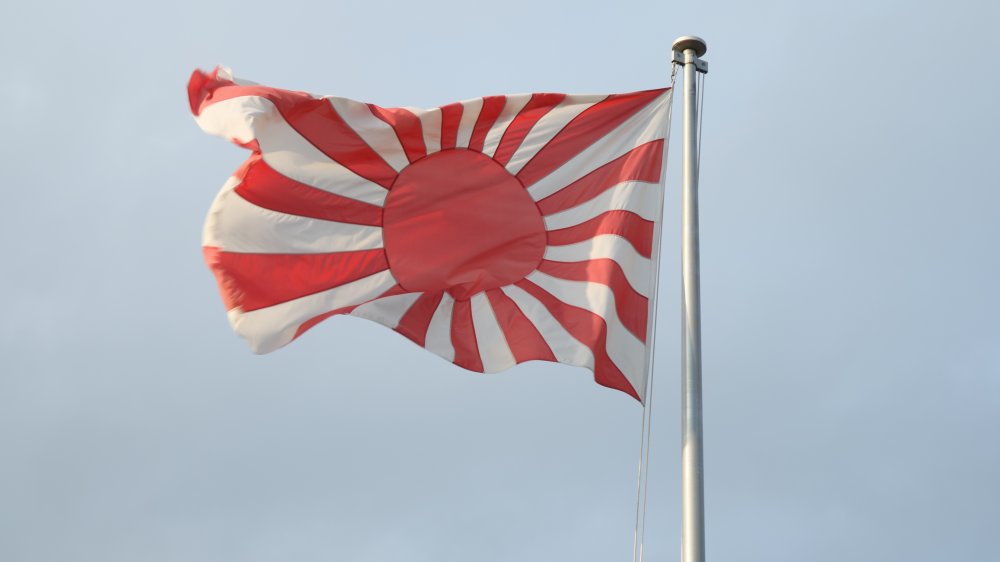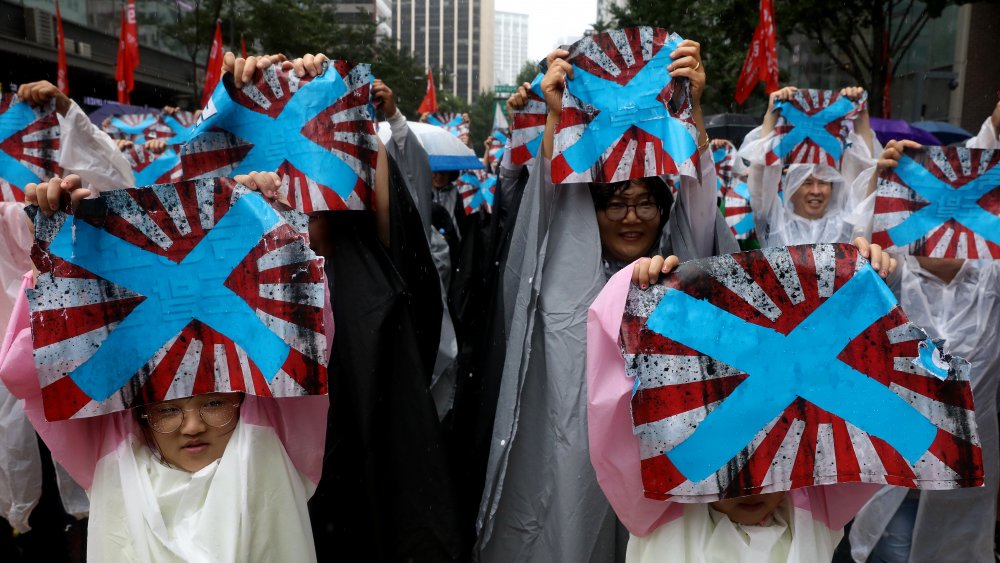The Real Meaning Of The Japanese Rising Sun Flag
No matter what country it represents, a flag is enormously symbolic. It represents a nation's past, its present, and its potential. How a flag is perceived by its citizens can be vastly different from the way it's perceived by other nations. And a great example of this problem is Japan's "Rising Sun" flag.
According to CNN, the rising sun flag is beloved in Japan but seen as offensive by many other nations, especially South Korea. In fact some South Koreans, including An Min-suk, chair of South Korea's parliamentary committee for sports, think the flag should be banned from the 2020 Tokyo Olympics. "The Rising Sun flag is akin to a symbol of the devil to Asians and Koreans, just like how the swastika is a symbol of Nazis, which reminds Europeans of invasion and horror," An said during a press conference.
Japan thinks that's a little harsh, since the Rising Sun flag predates imperial Japan and has an enduring place in Japanese culture and history. Who's right? Depends on who you ask.
A brief history of the Rising Sun flag
The Rising Sun flag was adopted by the Japanese Navy in 1870. It depicts a stylized sun in the form of red circle with 16 rays, and it has its origins in the idea that Japan's easterly location makes it "the land of the rising sun." So that's benign enough, but because Imperial Japan basically flaunted the Rising Sun flag all over Asia before and up through World War II, the flag came to take on another meaning. Military victories were celebrated with the Rising Sun flag, and it was included in most of the Japanese propaganda that was distributed at the time. Today the flag has been adopted by right-wing ultranationalists, who are unapologetically nostalgic for the glory days of Japanese imperialism.
Those who support the continued use of the Rising Sun flag point to its history — it can't be compared to the swastika, they say, because it existed before Japanese imperialism while the swastika was used to promote Nazi ideologies from the beginning. Although if you want to get technical, the swastika existed long before the Nazis did, and it originally meant "good luck" and "well being." And still, literally no one is arguing that it should be flown at the Tokyo Olympics.
All symbols can change meaning over time, even flags, but it's a difficult problem because flags can also become beloved. When something symbolizes a nation's entire history, it's difficult to convince people to just abandon that symbology and replace it with something else — even if those people can understand why others might find it offensive.

